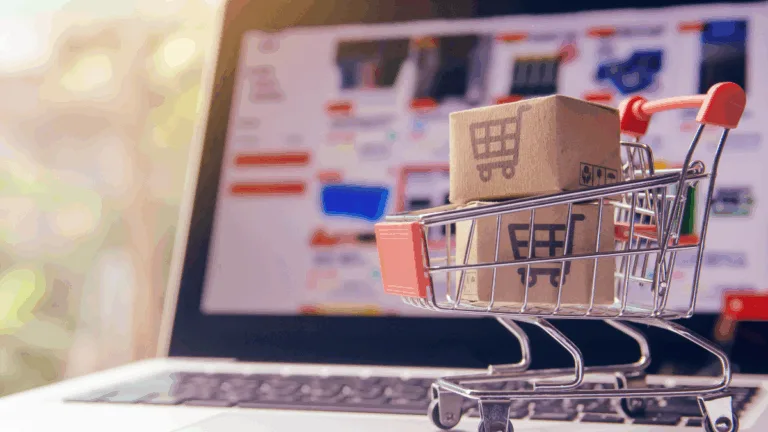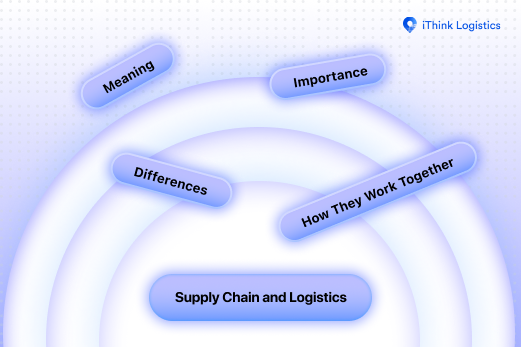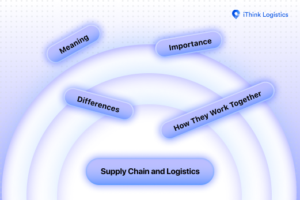🚀 The Future Isn’t Coming — It’s Already Delivering
If you’ve been wondering whether Artificial Intelligence (AI) is really changing eCommerce or if it’s just another tech buzzword, here’s your sign: it’s already reshaping how India sells, ships, and scales online.
At iThink Logistics, we’ve been tracking thousands of shipments, seller interactions, and customer journeys every single day. What our internal analytics show mirrors the global data. AI isn’t the future; it’s the framework of tomorrow’s commerce.
So, let’s have a quick look at the AI statistics for 2026 that every Indian eCommerce seller should know with a healthy dose of optimism, real numbers, and iThink insights.
💡 AI in Today’s World is the “Status Update” you as a seller can’t Ignore
In 2025 alone, India witnessed a 3X rise in AI adoption among D2C and SME sellers. (Source)
At iThink Logistics, we analyzed over 1.2 million shipments and found that sellers using AI-driven courier allocation and predictive NDR tools experienced:
📦 19% faster order resolutions
💬 31% fewer failed deliveries
💰 Up to 11% higher profit margins due to smarter route selection and COD follow-ups.
Now imagine what happens when this power scales across every stage of the eCommerce funnel — from marketing to delivery. That’s the AI-first world we’re entering in 2026.
🧠 AI Fact: According to MarketsandMarkets, the global AI industry is projected to grow from $371.7 billion in 2025 to a whopping $2.4 trillion by 2032 that’s a 30.6% CAGR and eCommerce will be one of its biggest beneficiaries.
📊 The Big Picture: AI Market Share & Size (2026 Snapshot)
Let’s look at the landscape sellers are stepping into:
| Metric | 2025 | 2026 (Projected) | Source |
| Global AI Market Size | $371.7 B | $521 B | MarketsandMarkets |
| AI in eCommerce | $8.6 B | $9.9 B | SellersCommerce |
| India’s AI Market | $12.3 B | $15.9 B | NASSCOM-BCG |
By 2026, AI will touch every fourth decision made in online retail — from ad optimization to delivery allocation.
From Buzzword to Business Partner — AI in eCommerce Gets Real
Let’s make it tangible. Here’s how AI is showing up in real Indian eCommerce workflows, validated by iThink’s logistics data and partner network:
- Smart Courier Allocation
→ Our internal algorithm, powered by machine learning, predicts delivery success rates by pin code, carrier, and order value.
Result: Sellers saw 15–20% fewer RTOs (Read more: The NDR Triangle Explained). - AI-Based NDR Follow-Ups
→ Our predictive system automatically categorizes NDR (Non-Delivery Reports) and follows up through IVR, WhatsApp, and SMS in real-time.
Result: 76% of delayed orders converted to successful deliveries for brands like Dr. Rashel and House of Makeup. - Inventory Forecasting & Seasonal Demand
→ With AI-assisted predictive insights, sellers plan dispatch volumes around peak events (Diwali, IPL, Big Billion Day), avoiding overstocking. - Generative AI in Marketing
→ Sellers using AI tools for content, ad copy, and A/B testing reported up to 2.5x higher ad CTRs (as per EY’s 2025 Retail AI report).
🧩 AI Statistic Verified by iThink: Indian sellers who use automation for courier allocation and NDR handling have 3x higher repeat delivery success than those relying on manual decisions.
🌍 Advantage of Ai to Indian Sellers for the year 2026
While the West debates regulation, India is busy implementing. Along with UPI, ONDC, and digital payments powering 130 billion+ annual transactions, AI in logistics and retail is getting richer datasets than anywhere else in the world.
According to EY India, 48% of Indian businesses already run GenAI pilot projects the highest in Asia. And with eCommerce projected to hit $200 billion by 2027, this synergy of AI + logistics + commerce will shape a trillion-dollar ecosystem.
For context:
- 90% of Indian consumers now expect same-day or next-day delivery.
- AI-backed route planning at iThink has already reduced average SLA by 18% across metro corridors.
(Read also: How Packaging Mistakes Kill Profit Margins)
🔮 Top 5 AI Trends Defining eCommerce in 2026
1️⃣ Predictive Logistics Becomes Default
Every parcel you ship will soon be backed by probability ETA predictions, success rates, and optimized courier mapping, all powered by AI.
2️⃣ Conversational AI Will Replace Static Tracking Pages
Chatbots and voice assistants will deliver live tracking updates, handle NDRs, and process returns instantly, 24×7 that too with less manpower.
3️⃣ Dynamic Pricing and Hyper-Personalized Offers
AI will study buyer intent and deliver tailored pricing turning the browsing audience into buying ones.
4️⃣ Visual Search and AR Try-Ons
Consumers will shop using their camera, not their keyboard or phone screens. Sellers implementing AI-powered visual search see up to 40% higher conversion rates.
5️⃣ GenAI-Driven Brand Communication
From email to WhatsApp automation — GenAI will ensure that your brand never sleeps and keeps on evolving.
⚙️ Challenges: Not a Red Flag, Just a Speed Bump
AI isn’t magic, it’s a mathematics meeting experience.
Sellers must still:
- Train data correctly (garbage in = garbage out)
- Protect customer privacy
- Balance automation with human empathy
At iThink Logistics, our approach is Human-in-the-Loop AI letting data predict, but people decide. That’s how we maintain trust while scaling intelligence.
🧭 What Should Sellers Do Right Now?
If you’re reading this in 2025, congratulations you are almost ready for 2026 after reading this blog. Here’s what you should do now:
- Automate your courier allocation on the basis of data — it’s the fastest ROI move.
- Enable predictive NDR & COD recovery tools — don’t let missed deliveries burn your profit.
- Start experimenting with AI-generated creatives and personalized offers.
- Audit your logistics data monthly. The smarter your dataset, the sharper your AI becomes.
🌟 Wrapping Up: The AI Era Isn’t Replacing Humans — It’s Rewarding the Smart Ones
The progress in artificial intelligence isn’t about replacing effort, it’s about amplifying and optimising it. The eCommerce brands that blend human creativity with machine precision will win 2026.
At iThink Logistics, we’re already seeing it happen across millions of deliveries, data points, and happy sellers.
So the question isn’t “When should you adopt AI?”
It’s “How soon can you start using it to deliver better?”












Leave a Reply